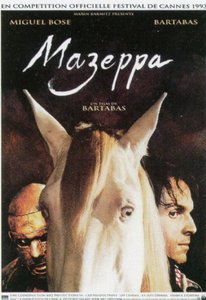
Cannes is a city located on the French Riviera. It is a commune located in the Alpes-Maritimes department, and host city of the annual Cannes Film Festival, Midem, and Cannes Lions International Festival of Creativity. The city is known for its association with the rich and famous, its luxury hotels and restaurants, and for several conferences.

The Cannes Festival, until 2003 called the International Film Festival and known in English as the Cannes Film Festival, is an annual film festival held in Cannes, France, which previews new films of all genres, including documentaries, from all around the world. Founded in 1946, the invitation-only festival is held annually at the Palais des Festivals et des Congrès. The festival was formally accredited by the FIAPF in 1951.
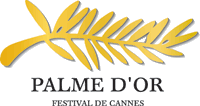
The Palme d'Or is the highest prize awarded at the Cannes Film Festival. It was introduced in 1955 by the festival's organizing committee. Previously, from 1939 to 1954, the highest prize at the festival was the Grand Prix du Festival International du Film. In 1964, The Palme d'Or was replaced again by the Grand Prix, before being reintroduced in 1975.

Patrice Leconte is a French film director, actor, comic strip writer, and screenwriter.

Sergi López i Ayats is a Spanish actor mostly known for his work on Dirty Pretty Things, Solo mía, and Pan's Labyrinth.

Bruno Dumont is a French film director and screenwriter. To date, he has directed ten feature films, all of which border somewhere between realistic drama and the avant-garde. His films have won several awards at the Cannes Film Festival. Two of Dumont's films have won the Grand Prix award: both L'Humanité (1999) and Flandres (2006). Dumont's Hadewijch won the 2009 Prize of the International Critics for Special Presentation at the Toronto Film Festival.
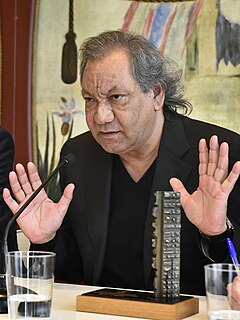
Tony Gatlif is a French film director of Romani ethnicity who also works as a screenwriter, composer, actor, and producer.

Chronicle of the Years of Fire is a 1975 Algerian drama historical film directed by Mohammed Lakhdar-Hamina. It depicts the Algerian War of Independence as seen through the eyes of a peasant.
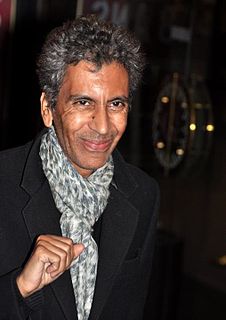
Rachid Bouchareb is a French film director and producer. His films are based on the complex history of France and its relationship with its former colony, Algeria. His films also examine racial discrimination and conflicts in other countries, using historical dramas and contemporary settings to show his message.
Bartabas is the performing name of a French horse trainer, film producer and impresario. He created his first theater company at age seventeen, and later founded the performing troupe, Cirque Aligre. In 1984, he founded the equestrian performing show, Zingaro, which means "Gypsy". The name was taken from the name of his first horse, a spectacular Friesian horse who was also the star of his shows.

The 53rd Cannes Film Festival started on 14 May and ran until 25 May 2000. French film director, screenwriter, and producer Luc Besson was the Jury President. The Palme d'Or went to the Danish film Dancer in the Dark by Lars von Trier.

Robert Jules Guédiguian is a French film director, screenwriter, producer and actor. Most of his films star Ariane Ascaride and Jean-Pierre Darroussin.

The 50th Cannes Film Festival was held from 7 to 18 May 1997. The Palme d'Or was jointly awarded to Ta'm e guilass by Abbas Kiarostami and Unagi by Shohei Imamura. Jeanne Moreau was the mistress of ceremonies.

The 46th Cannes Film Festival was held from 13 to 24 May 1993. The Palme d'Or went to Farewell My Concubine by Chen Kaige and The Piano by Jane Campion.
Black Dossier is a 1955 French crime drama film directed by André Cayatte. It was entered into the 1955 Cannes Film Festival.
Sweet Inquest on Violence is a 1982 French drama film directed by Gérard Guérin. It was entered into the 1982 Cannes Film Festival.

Francis Girod was a French film director, actor, and screenwriter. He directed 20 films between 1974 and 2006. His film L'enfance de l'art was entered into the 1988 Cannes Film Festival. In 1994 he was a member of the jury at the 44th Berlin International Film Festival.
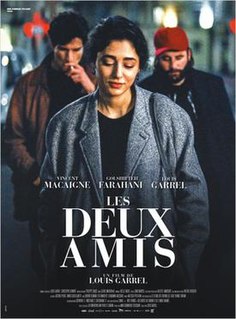
Two Friends is a 2015 French romantic dramedy film directed by Louis Garrel in his feature debut, and co-written by Garrel and Christophe Honoré. The film is loosely based on the play The Moods of Marianne by Alfred de Musset. It was selected to screen in the International Critics' Week section at the 2015 Cannes Film Festival.

Ivan Mazepa (1639–1709) was a significant figure in the history of Ukraine. One story about him says that as a young man, he was caught in flagrante with a noblewoman, whose husband punished him by tying him naked to a wild horse and setting them free; eventually he reached the Cossacks and became their military leader. This legend caught the attention of the English poet Lord Byron, whose Mazeppa (1819) brought the events to wider attention. His narrative poem inspired many paintings, particularly by French Romantics, which in turn stimulated musical compositions, stage plays, more poems, and so on. New life was breathed into the equestrian tale when it was transposed to the American Wild West. With the independence of Ukraine in 1991, the figure of Mazepa is once again on the international stage.
